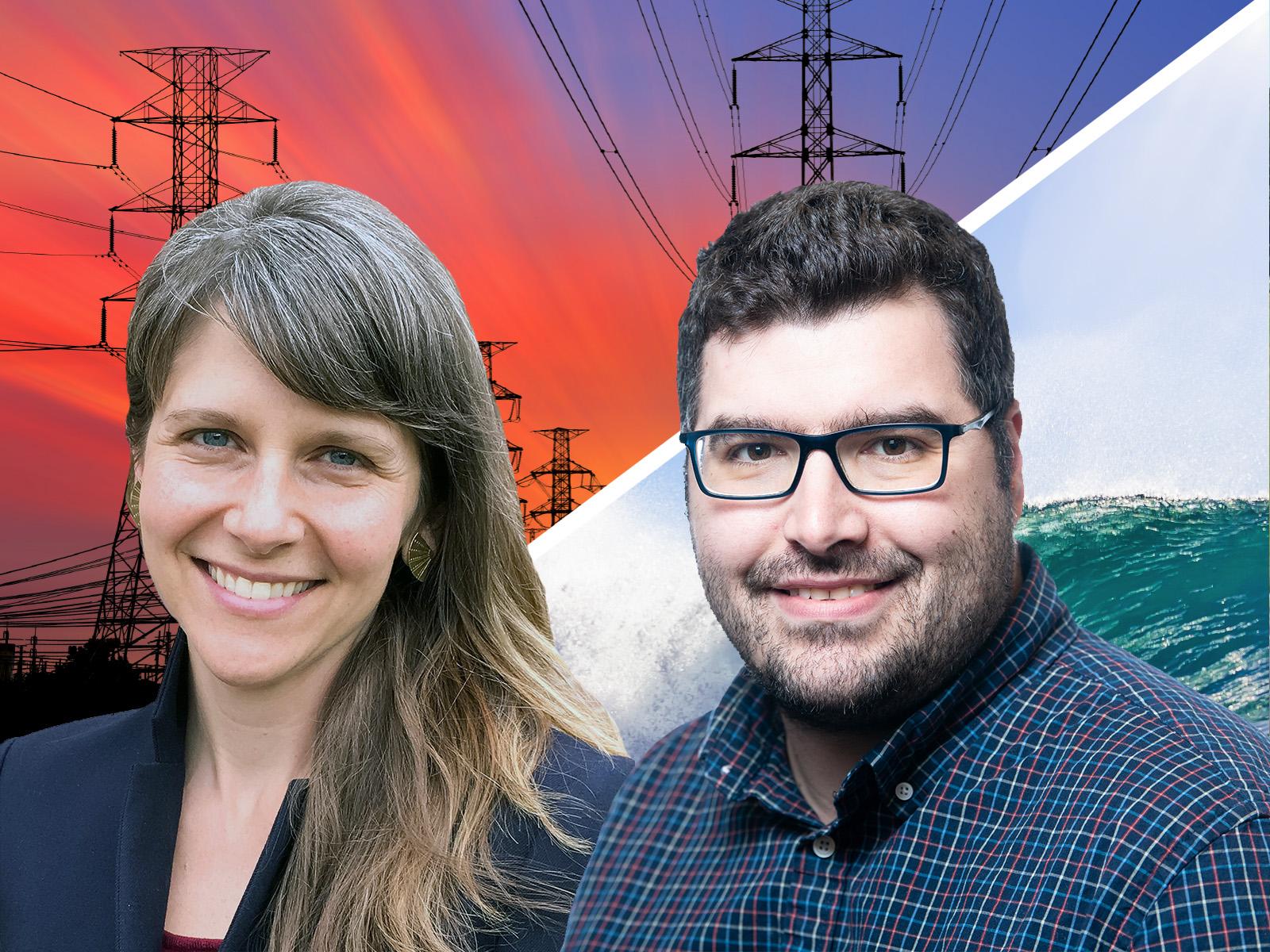PNNL Duo Building a Bridge between Water-Power Researchers
O’Neil and Oikonomou convene water-power systems task force at IEEE

Rebecca O’Neil (left) and Kostas Oikonomou (right), along with the University of Utah's Masood Parvania are convening the water-power task force.
(Composite image by Shannon Colson | Pacific Northwest National Laboratory)
The future of innovation in water and power is full of potential, and now researchers thinking about the subject from different angles have a new creative space to collaborate. PNNL’s Rebecca O’Neil and Kostas Oikonomou are inviting researchers who study the structure, function, evolution, vulnerability, and resilience of coupled water and power systems across the world to join in collaborating broadly on the topic.
Along with colleague Masood Parvania, who leads U-Smart: Utah Smart Energy Laboratory at the University of Utah, they are starting a new task force within IEEE’s Power and Energy Society. IEEE is the world’s largest technical profession organization dedicated to advancing technology for the benefit of humanity.
“We believe there’s an opportunity to develop a much wider research agenda related to water,” said Rebecca O’Neil who leads the renewable energy team at PNNL. “As part of IEEE, an international community of researchers will have a way to collaborate and express a broad range of research ideas and creative vision, beyond the narrowest intersections of energy and water domains.”
Energy system resilience relies on safe, secure, and affordable water as acknowledged by the U.S. Department of Energy’s Water Security Grand Challenge. The Water Power Technologies Office, within DOE’s Office of Energy Efficiency and Renewable Energy, funds research and development for marine, hydrokinetic, and hydropower technologies, as well as research that looks at the relationship between water and power systems. This office supports a wide variety of research efforts within PNNL, as well as the formation of the task force.
O’Neil will serve as the Water-Power Systems Task Force chair, Parvania will be the vice-chair, and Oikonomou will be the secretary. They will host a task force kickoff meeting on December 2, and hope to draw registrants from academia, government, industry and the national laboratories to share ideas for new technical directions.
“We want to increase the research impact in water-power systems and there’s a real opportunity to bridge various perspectives—from the power sector, to water sector researchers and institutions charged with managing water,” said Oikonomou, an electrical engineer who studies the operation, optimization, economics, and resilience of interdependent critical infrastructures. “We are looking for ideas and potential gaps, so we’re asking for input ahead of the meeting to identify key collaboration areas for the first year of the task force.”
Prospective topics include integrated planning and operation of water and power systems; relationships between water resilience and energy resilience; advances in water-powered technologies, such as hydropower and marine energy; and utilization of advanced power system management techniques for the benefit of water management.
Organizers envision task force members will cooperate to publish white papers on the future vision of water-power systems, organize panel sessions and communicate the challenges and opportunities in the field.
The IEEE task force website is available here, or for more information, please contact Kostas Oikonomou.
Learn more about PNNL’s research that assesses water and wastewater systems as potential distributed energy systems, evaluates marine renewable energy as a grid benefit, and models interactions between energy, water, land, and urban systems.
Published: November 23, 2020